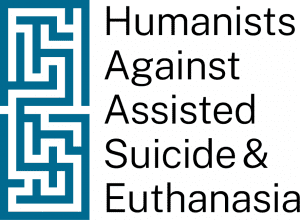Why we are opposed:
1/ The campaign for assisted suicide and/or euthanasia (ASE) is based on fear, not reality.
The answer to fears about death is better palliative care. Most deaths – even according to Dignity in Dying – are peaceful. But for those that are not, ASE is not the answer; in the Netherlands, where ASE has been legal for more than 20 years, between 28.5% and 42.8% of deaths still experience pain and restlessness. There are a very few cases where taking action to end a life is necessary and right. But they are unlikely to be prosecuted, let alone be convicted. Leave the law as it is and put resources into palliative care.
2/ We should continue to prevent suicides.
ASE undermines suicide prevention, as the results of legalised ASE in Canada indicate. It is confusing to say that suicide should be prevented but suicidal wishes may be fulfilled with the help of a doctor. The problem with suicide is that it takes a life, not the physical method of suicide.
3/ Human lives should be treated as of equal worth.
Our homicide laws provide the same penalty for killing an ill 87yr old as it would for killing a healthy 27yr old. Why would our attitude to suicide be different? Legalising ASE would create an unequal society.
4/ We believe it is wrong for the state to kill citizens, whether as punishment for a crime or simply because their lives are wretched.
The problem is not the fate of the individual concerned but the fate of a society that agrees to kill them. Even when it has the best possible motives, we believe that institutional killing is problematic.
5/ The impetus behind ASE may be compassion – but is also utility.
The commitment to autonomy claimed by proponents of assisted dying is false; no one campaigns for everyone to have the right to die. Instead, proponents want to reserve the “benefits” of ASE to the ill, the disabled and the elderly, who cost more to keep alive than others. We don’t think that it is civilised to measure the value of lives in monetary terms. Yet it is impossible to “draw the line” without recourse to utility.
6/ Where legal, ASE generally expands from those imminently dying to disabled people, diminishing the value of their lives.
In every country where euthanasia is legal, those suffering from a disability are eligible for an assisted death. Many who support legalisation of ASE for those suffering from a disability do so because “I wouldn’t want to live like that”. It is other people’s perception of the value of the lives of disabled and elderly people that means that they are eligible for ASE.



 What do the public understand assisted dying to mean? We are raising money to conduct a poll to find out.
What do the public understand assisted dying to mean? We are raising money to conduct a poll to find out.